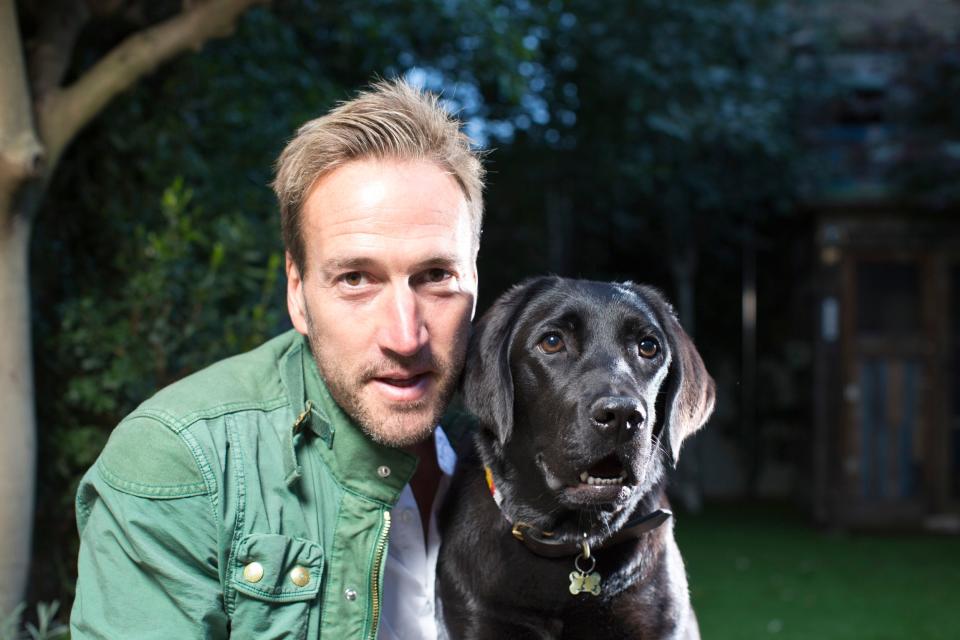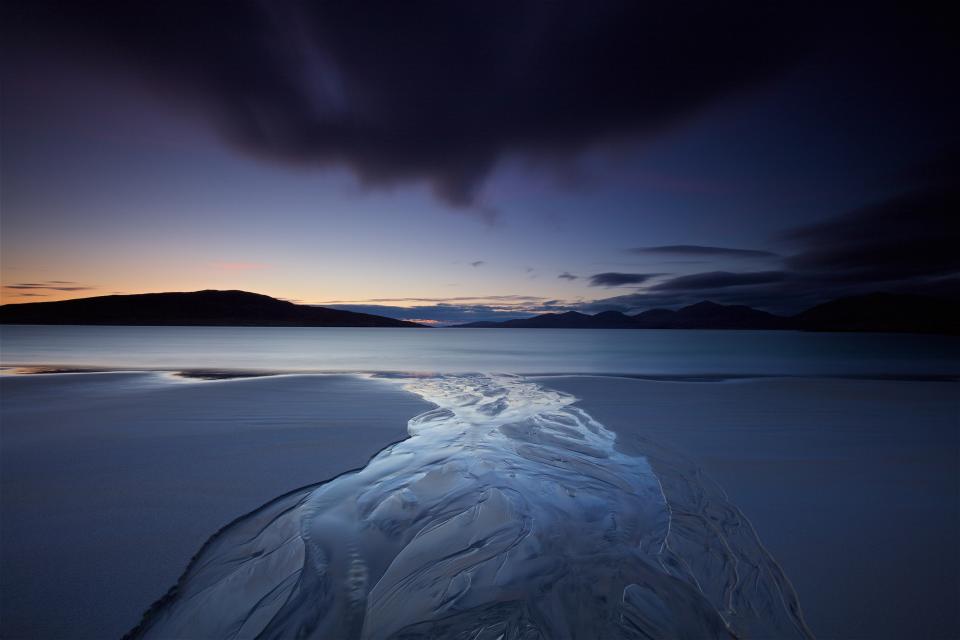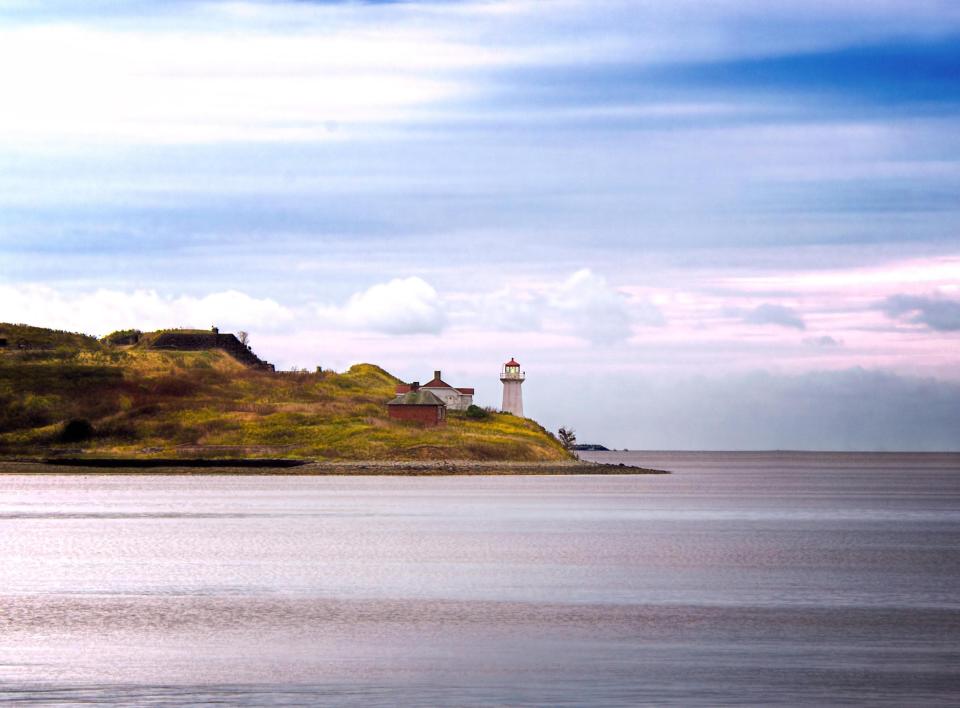20 years ago Ben Fogle was on Castaway – now he's isolated again

Twenty years ago I found myself marooned on a windswept, uninhabited island when I turned castaway for a year. I hadn’t been washed ashore from a shipwreck like Robinson Crusoe, but had been transported there by a thoroughly 20th-century contrivance – television.
It was 1999, the eve of the millennium, and amid the panic of the Y2K bug (a computer flaw affecting dates beyond 1999), the BBC was planning to celebrate the turn of the century with a “ground-breaking project” in which a group of ordinary folk would be resettled on an island for a year, in an experiment about self-sufficiency, isolation and community.
I was working for the magazine Tatler, as its picture editor. The job had come my way accidentally and I was looking for an excuse to leave. The Castaway 2000 experiment looked perfect. I had images of beaches, palm trees, cocktails and bikinis (not mine), so you can imagine it was a slight let-down to discover that the island wasn’t Caribbean, but Outer Hebridean.
We would be settled on a wind-lashed, storm-tossed, treeless, people-free outpost in the Western Isles of Scotland – the isle of Taransay, a few hundred yards across the water from nearby Lewis and Harris. It was an island, off an island, off an island.
The cold didn’t put me off, so I applied alongside thousands of other volunteers. Gradually, over six months, we were interviewed and tested as the producers – helped by real-life castaway Lucy Irvine and Lofty Wiseman, author of the SAS Survival Handbook – narrowed us down to the chosen few.

There were 36 of us, to be exact – men, women and children of all ages and all backgrounds, chosen for our various abilities and sensibilities. These were the early days of reality TV – indeed, this was arguably the first major reality show in entertainment. Before the arrival of Big Brother, Love Island and The X Factor, nobody applied to be on a reality show for fame and fortune.
We Castaway volunteers were there for the island, the real star of the show. I had always loved islands, but it was Taransay that really stole my heart. On paper, she looked ruthless and unforgiving, but in real life she was beautiful and kind. As well as falling in love with the island, I fell in love with island life.
Ours wasn’t a game show. There was no winner, no voting off, no audience interaction; nor was there prize money, a presenter or agents. Castaway genuinely was an experiment; the aim of the show was to become fully self-sufficient over the course of 12 months.
Shortly before we began the project, we all met with a team of experts to decide what basics we would need to begin. Water piping, building items, fencing, polytunnels, seeds, animals… Then, on Dec 27 1999, we were dropped on the beach with some pigs, cows, a horse, some chickens and a pile of materials – and we were left to build a community from ground zero.
We were cut off from the outside world, with no phones, email, social media, internet, visitors, news, television or family. We were allowed letters, but apart from that we had no means to teach us how to milk a cow or build an abattoir. We were on our own.
It was an extraordinary year. Reality TV has changed beyond all recognition. Today it’s all about Botox, bleach and boobs, but back then we all had wax jackets, yellow teeth and paunches. We didn’t care about looks and appearances. Our programme was all about Taransay.
Islands are like magnifying glasses to greater society. They allow us to be more introspective. The isolation leads to creativity, resourcefulness and resilience. I always thought that, in the event of a pandemic or zombie apocalypse, I would return to the island of Taransay. Now that we are living in the unimaginable, I find myself in lockdown, isolated from the isolation of the Outer Hebrides.
What is it about islands that is so enthralling? I think it’s important to accept that we do not all have the same relationship with them. They are a little bit Marmite. Some people find the isolation overwhelming, while others find it empowering.
My year on Taransay was character-building. Not only did I learn new skills, I also discovered myself. Free from the bombardment of information, materialism and commercialism that most of us experience on the mainland, isolation allows us to slow down.
The isolation of Covid-19 is similar to that of islands in that respect; we have stepped off the hamster wheel. The result is that we have time to reflect. We have time to consider what we have done, what we are doing and where we are going.

The term “island time” insinuates a languid pace of life – but don’t get me wrong: life on Taransay was tough. Without central heating we had to comb the beaches for driftwood to dry out in the incessant wind for firewood. We had to rear and slaughter our own animals. We built a school and taught the children. We had to grow, tend, harvest and then cook all our own produce.
We were always busy, but by necessity rather than distraction. I learnt all my people skills cooped up with a group of very different folk.
Island life, just like corona lockdown, forces us to be more resourceful. You will recall the early days of panic-buying from supermarkets that led to a worldwide shortage of loo roll.
The thing about the isolation of islands is you have to rely on yourself. If you run out of something, you can’t run to the supermarket or call out the plumber. You make do and mend.
I have since travelled to more than 100 islands around the world, including some of the most remote and hardest to reach. I have spent time on islands off Canada and Norway, where people have escaped to start a new life in the wild. Indeed, for my new series New Lives in the Wild, I revisited Jim, an Australian who bought his own offshore hideaway – Wilderness Island, off north-west Australia. I was torn between jealousy and an appreciation of the difficulties that come with remote island living.

Many island stories are about solitary, lonely isolation. For me, though, islands are about enjoying the company of others. Our most memorable family holiday was a week spent on an island off Nova Scotia, Canada – Spectacle Island, which belongs to my wife’s uncle. Comprising just two acres, it has a cabin, an outdoor shower and no electricity. We escaped the rain and wind by playing card games – and explored the islands nearby.
I still long to own an island. In fact, as I write this, a small one had just come on to the market in Shetland. As soon as lockdown is eased, I’ll be taking the ferry north to seek it out and rediscover that castaway feeling.
Ben Fogle: New Lives in the Wild is broadcast on Channel 5

